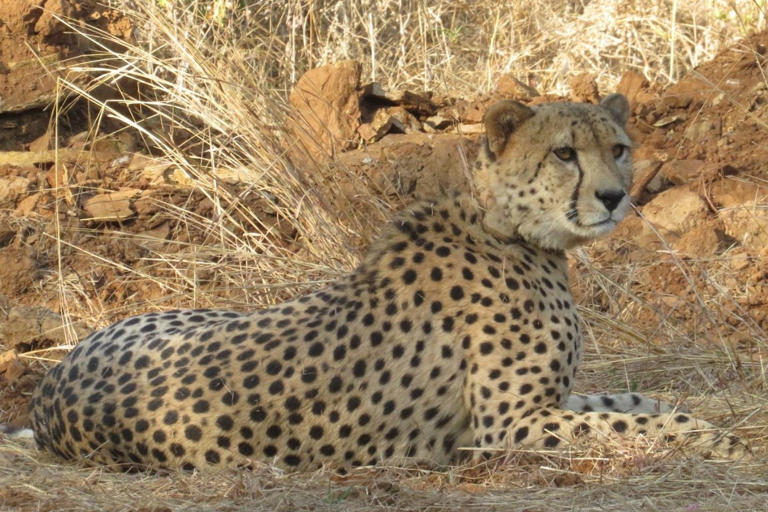Driver Faces Action for Giving Water to Cheetahs at Kuno National Park as Viral Video Sparks Safety Concerns
A recent incident at Kuno National Park in Madhya Pradesh, India, has sparked both emotional and disciplinary responses after a viral video showed a park driver offering water to a cheetah and her cubs. The man, employed as a driver at the national park, was seen helping a female cheetah named Jwala and her four cubs drink water from a metal pan. While the heartwarming video initially drew widespread praise for the compassion shown toward the endangered animals, it has since led to disciplinary action due to protocol violations.
Kuno National Park is the center of India’s ambitious cheetah reintroduction project, aimed at repopulating the big cats that went extinct in the country in 1952. A total of 20 cheetahs were relocated from South Africa and Namibia between 2022 and 2023. With the birth of new cubs, the cheetah population at Kuno now stands at 26. However, the project has been under increasing scrutiny due to several setbacks. At least eight cheetahs have died since their relocation, with causes ranging from kidney failure to injuries sustained during mating. Additionally, many of the cheetahs have strayed beyond park boundaries, raising concerns over their ability to adapt to the Indian environment.
The video that triggered the current controversy shows the cheetah Jwala and her cubs approaching the water offered by the driver, who is not part of the authorized wildlife team. According to park authorities, such interactions are strictly restricted to trained personnel only. The rules are in place to minimize the risk of human-animal conflict and to ensure the safety of both the wildlife and the staff. Uttam Kumar Sharma, the Additional Principal Chief Conservator of Forests, stated that while it is sometimes necessary to lure cheetahs back into the protected forest when they venture near the boundary, this task is exclusively assigned to authorized officials.
The driver’s well-intentioned but unauthorized act has now led to disciplinary proceedings. Officials reiterated that while it is not unusual for cheetahs to approach the park boundary and receive water from trained personnel, any untrained intervention poses a risk and goes against established wildlife management protocols.
This incident has reignited discussions about the viability and future of the cheetah reintroduction project in India. Critics of the initiative had already raised concerns about whether the African cheetahs could successfully adapt to Indian conditions, long before the first batch arrived in September 2022 on Prime Minister Narendra Modi’s birthday. The recent events—including fatalities among the cheetahs and their tendency to roam outside the designated conservation zone—have only intensified the debate.
Globally, cheetah populations are in decline, with fewer than 7,000 adult individuals remaining in the wild. They now occupy less than 9 percent of their historic range. With such statistics in mind, the success of India’s reintroduction project holds significant implications not just for national conservation efforts but also for global biodiversity.
For video news and further updates, visit our YouTube channel THE OLIGO.

